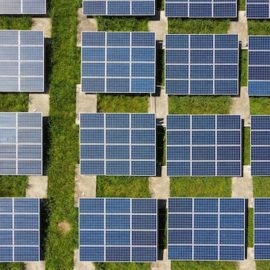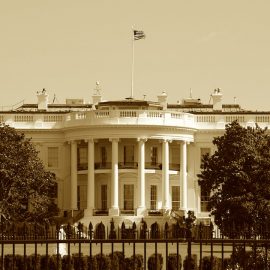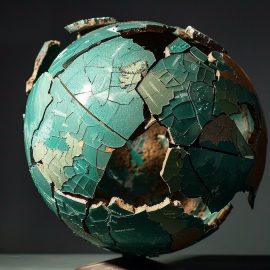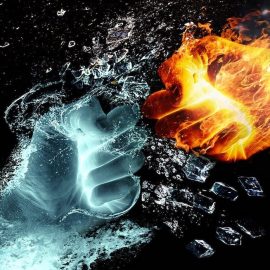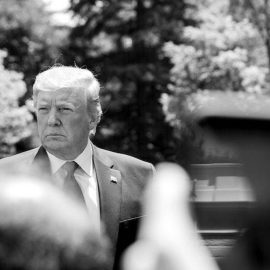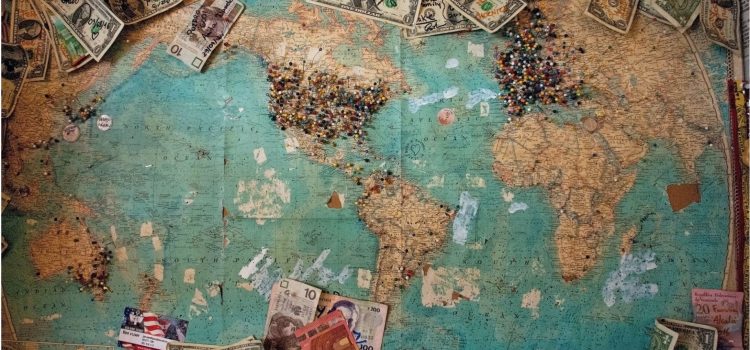
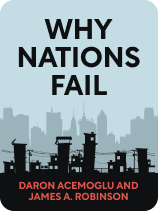
This article is an excerpt from the Shortform book guide to "Why Nations Fail" by Daron Acemoglu and James A. Robinson. Shortform has the world's best summaries and analyses of books you should be reading.
Like this article? Sign up for a free trial here.
What causes inequality in the world? Why are some countries prosperous while others struggle to survive?
In Why Nations Fail, economist Daron Acemoglu and political scientist James A. Robinson argue that current theories on national failure are flawed. They further explain that successful nations have political and economic institutions that are “open” while failing nations have “exclusive” institutions.
Read on to learn what really causes inequality and why the top theories are flawed, according to Acemoglu and Robinson.
What Causes Inequality? The 3 Top Theories
In their book, Why Nations Fail, economist Daron Acemoglu and political scientist James A. Robinson begin by exploring discussions of international inequality, which aim to explain why some nations succeed while others fail. They use the following standards to answer the question: what causes inequality?
- Successful nations are wealthy with high standards of living and relative economic and political stability.
- Failing nations are poor with low standards of living and a great deal of economic and political instability. A nation doesn’t have to collapse entirely to count as failing, but many failing nations do end up descending into chaos and anarchy.
(Shortform note: Some economists and activists argue for a definition of success that focuses less on wealth and more on health and happiness. They note that wealth and happiness don’t always correlate—nations like Bhutan and Costa Rica rank highly in terms of well-being and happiness despite not being exceptionally wealthy. As you read through the guide, consider how Acemoglu and Robinson’s definition of success influences their theory.)
Flawed Theories of International Inequality
The authors briefly discuss the three leading theories about what causes inequality—theories that they say can’t fully explain international inequality.
Theory #1: Geography
These theories suggest that geography determines which nations succeed or fail. Climate and availability of natural resources, both components of geography, have a significant effect on agricultural productivity. Geography theories suggest that nations with good climate, nutrient-rich soil, and many domesticable species got a head start on agricultural development. Meanwhile, nations with bad climate, poor soil, and few domesticable species lagged behind in agricultural development. These initial differences then eventually snowballed into present-day international inequality.
(Shortform note: Geography theory, also known as environmental determinism, has a long and varied history. Historically, scholars argue, environmental determinism was part of a broader theory of European supremacy. This theory claimed that the environment, culture, and racial background of Europe proved that Europeans were superior and that God had made them that way. Over time, scholars began to separate environmental arguments from racial and cultural ones; modern versions of environmental determinism from scholars like Jared Diamond (Guns, Germs, and Steel) deemphasize culture and especially race. However, some critics suggest that environmental determinism is inherently Eurocentric in its worldview nonetheless.)
Theory #2: Culture
Culture theories argue that what causes inequality can be connected to a nation’s cultural attitudes. They suggest that wealthy nations have cultures that highly value hard work, productivity, and technological development. On the other hand, according to these theories, poor nations have cultures that don’t encourage—and may even discourage—hard work and technological development.
(Shortform note: Many early culture theories of inequality evolved out of a belief that European culture was superior, and that non-Europeans were lazy and inferior. Classic works that developed these theories include Montesquieu’s The Spirit of Laws and Marx’s The Poverty of Philosophy As these ideas fell out of favor (to some extent), culture theories became less popular. However, the last few decades have seen a return of culture theories that try to avoid Eurocentrism. A work that explores modern culture theory is Robert Putnam’s Making Democracy Work, a study of inequality between northern and southern Italy. Putnam argues that northern Italy is more successful than southern Italy because of its bottom-up culture of community organization, trust, and cooperation.)
Theory #3: Competence
Competence theories argue that the skill of political leaders can be a cause of inequality. These theories suggest that skilled political leaders who understand economics make better decisions that create more wealth for their nations. On the other hand, unskilled leaders make more mistakes or bad economic choices that drive their nations into poverty.
(Shortform note: While competence theory suggests that skilled politicians will make decisions based on economic theory, some experts suggest that economists and economic theory actually have very little impact on political decision-making. They argue that this is because while economists are concerned with the real, long-term impact of a decision, politicians are often more concerned with the short-term public perception of a decision—since positive public perception is what gets them reelected.)
Why These Theories Are Flawed
Acemoglu and Robinson use North and South Korea to demonstrate the flaws in all three of these theories about what causes inequality. The two Koreas border each other but differ vastly in terms of wealth and quality of life. South Korea has a higher life expectancy, higher average salary, and better public utilities than North Korea. However, none of the theories above can explain why the two Koreas are so unequal:
- Geography: The two Koreas are next to each other on the same peninsula, meaning they have similar geography. Therefore, geography can’t explain why they are unequal.
- Culture: The two Koreas have a great deal of shared history, cuisine, music, and ancestry. Therefore, differences in culture can’t explain why they are unequal.
- Competence: Over the course of their histories, both Koreas have had leaders with varying amounts of economic knowledge. Acemoglu and Robinson suggest that simply saying, “North Korean politicians aren’t as smart as South Korean politicians,” is reductive and can’t explain why the two nations are so unequal—especially since decisions that leaders make are often based on political circumstances rather than economic theory.
| Historical Context: Why Did Korea Split? To understand why the Koreas are unequal, it helps to consider the circumstances of their split—why there are two Koreas in the first place. Before and during World War II, the Japanese Empire occupied the Korean peninsula. In the final year of the war, the Allies invaded Korea—the Soviet Union from the north and the United States from the south—and defeated the occupying Japanese. After the war, the United States, China, the Soviet Union, and Great Britain agreed to establish a “trusteeship,” running Korea together until they could establish a government to run the entire peninsula. However, negotiations quickly broke down—the Korean people protested the trusteeship, and the United States and Soviet Union became more and more at odds during the second half of the 1940s. Instead of working together to create one Korean government, the US and USSR each created their own—one strongly pro-communist and one strongly anti-communist, and both declaring themselves the one true government of Korea. Not long after they were established, the two governments went to war for control of the entire peninsula—the North backed by the USSR and China, and the South backed by the US and UN. When the war ended with no clear victor, an armistice formally created the North Korea and South Korea that still exist today. |
What Really Causes Inequality?
After explaining why existing theories on what causes inequality are flawed, Acemoglu and Robinson then outline their own theory for why the two Koreas—and nations across the world—are unequal. They believe that to understand inequality, one must study a nation’s political and economic institutions:
- Political institutions determine how a nation creates the rules that citizens live under. They also determine who wields power in society and how they wield it. Examples of open political institutions include a system of free and fair elections, town halls, courts, and legislatures.
- Economic institutions are the laws and incentives that influence how people behave in the market for labor, goods, and services. They determine the processes that distribute resources. Examples of economic institutions include banks, the stock market, and patent laws.
Political institutions necessarily determine economic institutions, argue the authors. This is because political institutions determine how rules are made—including the rules that govern economic institutions.
(Shortform note: The relationship between political and economic institutions is the subject of a long-running debate. Some, like Acemoglu and Robinson, argue that political institutions mainly influence economic institutions. Other scholars, however, suggest that economic institutions mainly influence political ones—for example, one scholar argues that the lifespan of a democracy depends on its per-capita income, where higher per-capita income leads to longer-lasting (or even indefinitely-lasting) democratic governments.)
Acemoglu and Robinson argue that inequality comes from different levels of institutional “openness”: freedom for citizens to participate in these political and economic institutions. More open nations succeed, while less open nations fail.

———End of Preview———
Like what you just read? Read the rest of the world's best book summary and analysis of Daron Acemoglu and James A. Robinson's "Why Nations Fail" at Shortform.
Here's what you'll find in our full Why Nations Fail summary:
- Why some nations have wealth while others struggle with poverty
- Why open nations thrive and exclusive nations typically fail
- How and why some nations change over time

